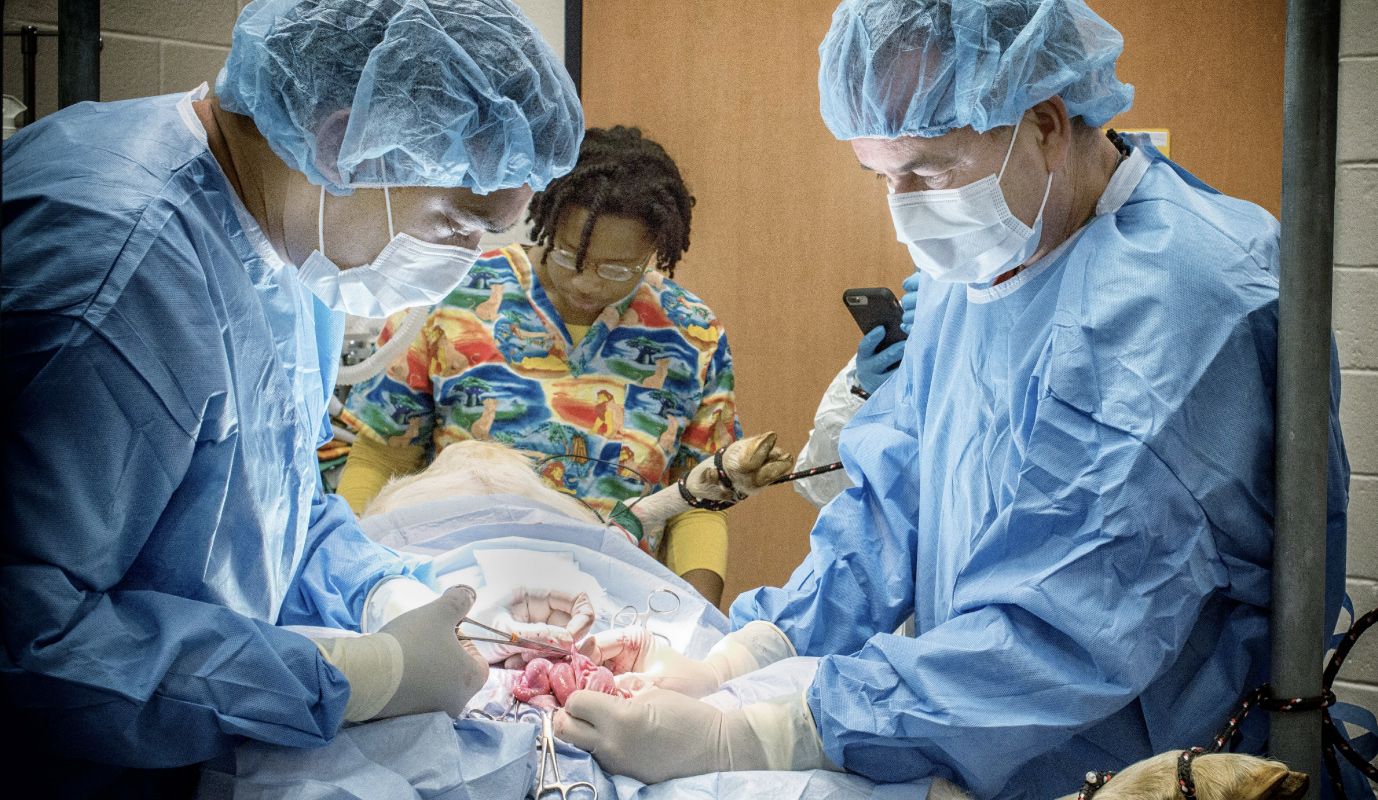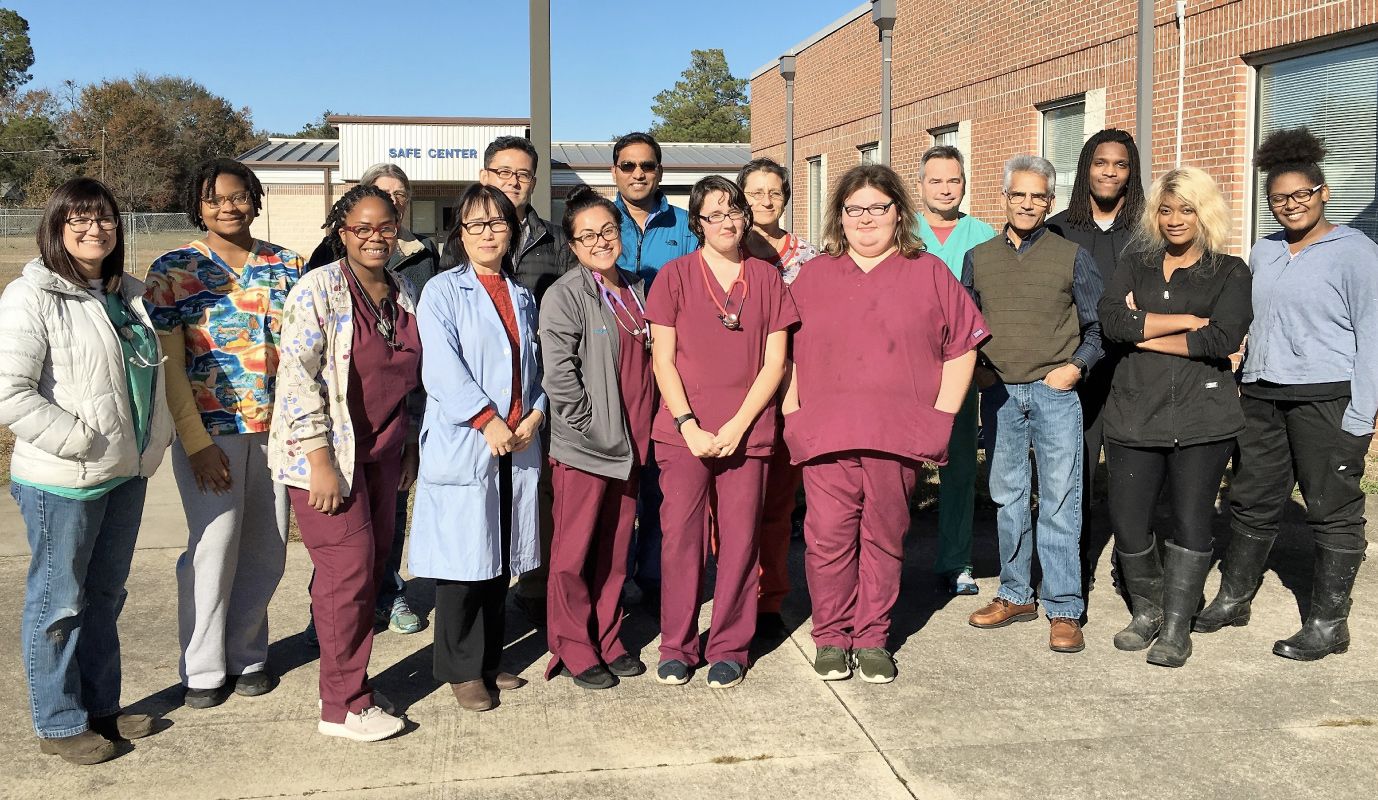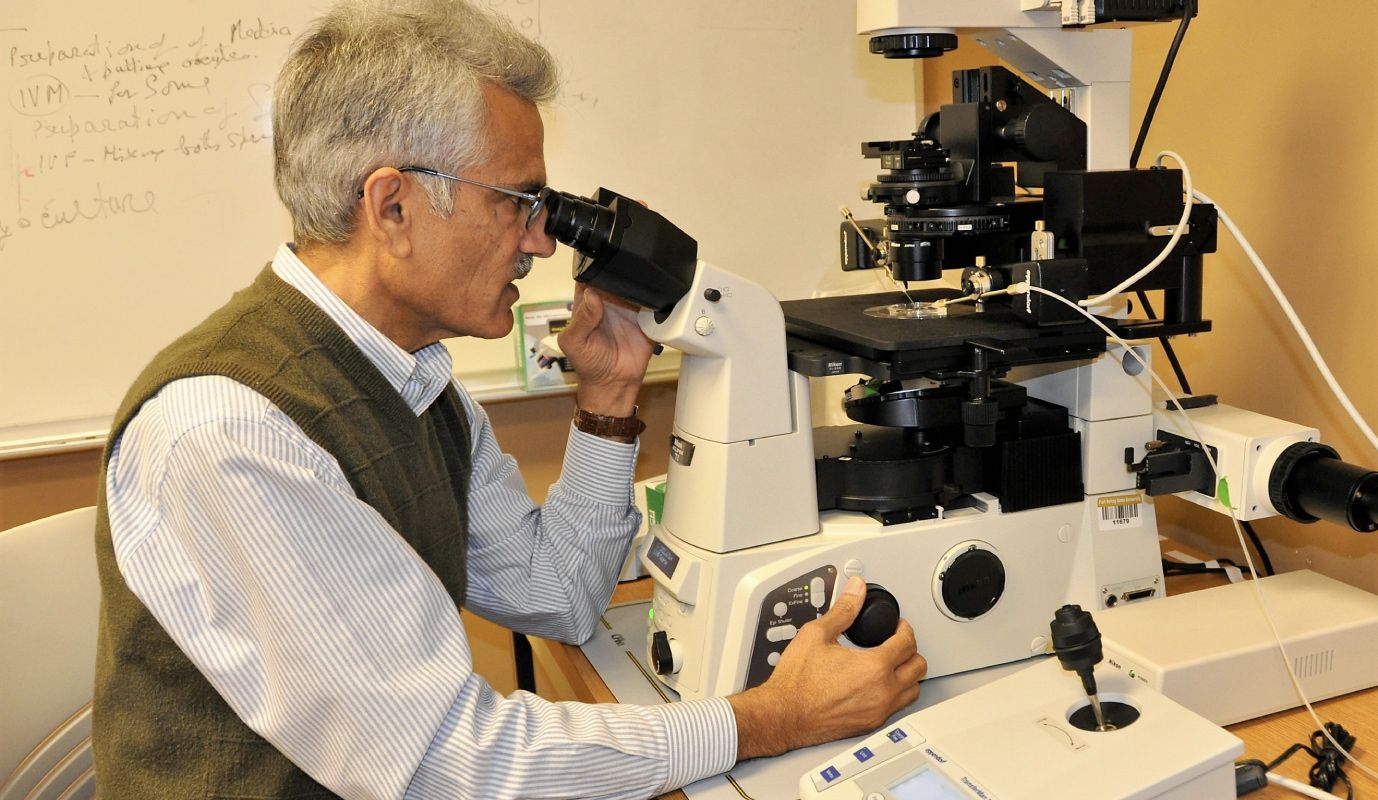A 21st century technology that allows scientists to modify an organism’s DNA could be the future roadmap for treating health ailments in humans and animals, including increasing food production.
Taking this revolutionary step, Fort Valley State University animal and veterinary science researchers teamed up with U.S. Department of Agriculture (USDA) scientists to conduct gene-editing research on goats.
To introduce this efficient technology on FVSU campus, Dr. Mahipal Singh, a FVSU professor of animal biotechnology, applied for a $99,870 USDA Faculty Research Fellowship grant (58-8042-7-019), in collaboration with the Veterinary Science Department.
“Our goal at FVSU is to establish genome-editing technology for use in goats and sheep to train students and undertake challenging research projects in animal science,” he said.
The animal biotechnology expert says traditional agricultural practices have reached their limit.
“We need to have more innovative ways to feed the growing population and benefit human and veterinary health,” Singh said.
With gene editing, scientists can precisely alter the sequence of a desired gene without introducing a foreign gene in the native genome.
“This technology is like editing letters in a textbook,” Singh described. “It is revolutionizing almost all disciplines of biology, especially livestock agriculture, to increase milk and meat production, prevent diseases like mastitis (infected udder) and create large animal models for human diseases.”
During a three-month trip in 2017, he visited the USDA Animal Biosciences and Biotechnology Laboratory in Beltsville, Maryland, where he trained in Drs. David Donovan and Telugu Bhanu’s laboratories.
“The entire genome-editing procedure is a complex enterprise and involves a good teamwork of personnel with various skills in molecular biology, genetic engineering, bioinformatics, embryology, livestock surgical procedures and animal husbandry,” Singh said.
Following his training, the professor returned to campus to collaborate with the Veterinary Science Department on an embryo transfer procedure in December 2018. This research involved 16 80-130-pound Spanish and Saanen goats.
For four days, a team of approximately 10 students, three USDA scientists and personnel from animal science and veterinary science transferred genome-edited embryos in synchronized goats. This requires obtaining several mature eggs from each animal. The procedure also included utilizing a combination of hormones to get a herd of goats in heat simultaneously.

The first step was surgical aspiration (recovering the eggs from oviducts by flushing) of the super ovulated eggs from six donor goats and collecting semen from the male goats (bucks).
“These freshly recovered eggs and sperms were then processed for in-vitro fertilization, where sperms and eggs are cultured together, and growing embryos in a culture dish,” Singh explained. “These early, one cell stage embryos (zygotes) were then microinjected with genome-editing reagents called CRISPR/Cas9 (clustered regularly interspaced short palindromic repeats).”
Subsequently, the 10 goats receiving embryos were tested for pregnancy.
“Our initial tests on the blood hormone levels gave some positive indication in at least two of the goats,” Singh said. “However, these results are still preliminary.”
Conducting initial pre-trials, Singh said the team improved their methods for the December operation by using a new incubator (experiment requires 5 percent carbon dioxide and 5 percent oxygen for the cultures to survive) and fresh semen from the bucks.

With participants only taking pizza breaks during the four-day procedure, Singh said the process is meticulous and involves diligent preparation a year in advance.
“Our veterinary science collaborators played a significant role,” he said.
Dr. George McCommon, FVSU’s department head and professor of veterinary science and public health, commended the partnership and said everyone involved brought something different to the table.
“Veterinary science provided the well-fed healthy goats, cared for the animals and took care of all medical and husbandry issues for the past two years,” he said. The department also provided anesthesia and worked hand in hand during the surgeries with the USDA scientists.
In addition to this partnership, two FVSU graduate students assisted in the planning process as part of their master’s thesis.
“Training today’s students in specialized technologies like genome editing is essential,” Singh said.
Tyler Williams, 24, of Waynesboro, Georgia, is pursuing a master’s degree in biotechnology. Interested in becoming a physician assistant in regenerative medicine, he said preparing for the surgeries was the hard part, but the overall experience allowed him to broaden his horizon.
“It gives me a diverse mindset on what I am aiming for and on how methodical and detailed research can be and how it can transfer to other areas,” he said.
Arunachala Kutagulla, 27, who is pursuing a master’s degree in animal science, said this kind of trending research on goats is new for him but provides the experience he needs.
The India native aspires to be a scientist specializing in conservation of animal genetic resources. “Dr. Singh’s lab provides a lot of resources for research,” he said. “It is the kind of exposure you want.”
For more information about this project, “CRISPR/Cas mediated gene targeting to reduce milk allergens and mastitis in goats,” contact Singh at (478) 822-7042 or singhm@fvsu.edu.

